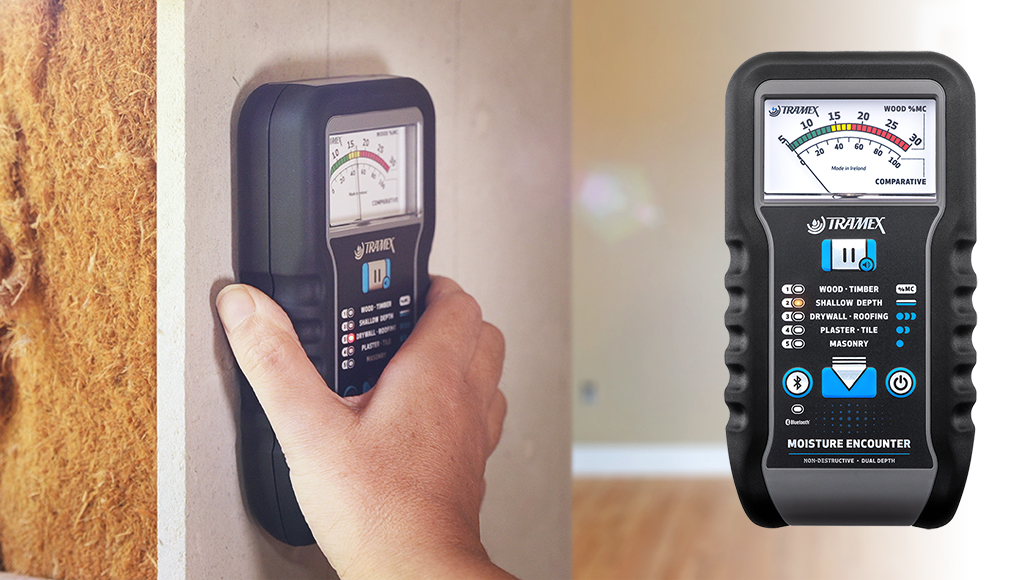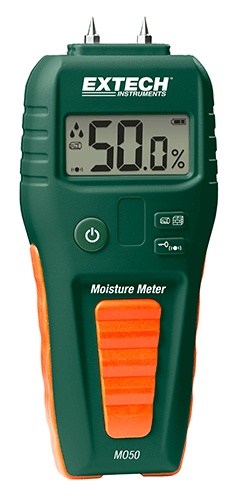The Ultimate Overview to Selecting the Right Moisture Meter for Your Needs
Wiki Article
The Ultimate Guide to Wetness Meters: A Comprehensive Overview and Exactly How They Can Save You Cash
In the realm of structure maintenance, building, and different markets, the value of properly gauging wetness degrees can not be overemphasized. Wetness meters function as essential devices in finding and keeping track of moisture content in materials, helping in stopping costly problems and making certain the quality of items. Comprehending the subtleties of different sorts of moisture meters, their applications, and the prospective cost-saving benefits they supply can be a game-changer for professionals and businesses alike. Uncovering exactly how these gadgets can not only streamline processes however additionally add to financial cost savings is a journey worth starting.Sorts Of Dampness Meters
One typical kind is the pin-type wetness meter, which measures the electric resistance in between 2 pins placed right into a product. Pinless moisture meters, on the other hand, usage electro-magnetic sensor plates to check a larger area without creating damages to the product's surface area.
Furthermore, there are also specialty wetness meters made for particular materials like dirt, hay, or grain. These meters supply accurate moisture readings tailored to the special residential properties of the product being evaluated. Infrared wetness meters determine the thermal homes of a material to determine its dampness web content non-invasively, making them useful for applications where pin or pinless meters might not be suitable. Comprehending the various kinds of wetness meters offered can aid industries select the most ideal device for their specific moisture measurement needs.

Advantages of Utilizing Moisture Meters
Wetness meters offer invaluable advantages in precisely checking and analyzing wetness degrees in varied products and atmospheres (Moisture Meter). Among the main advantages of utilizing moisture meters is the prevention of possible damages triggered by excess moisture. By finding and addressing high wetness levels early, wetness meters help to avoid mold and mildew growth, rot, and architectural damage in buildings, conserving both money and time on repairs. In addition, wetness meters help in making certain the top quality of materials during construction or manufacturing processes. By accurately measuring moisture content, these tools help keep the integrity of wood, drywall, concrete, and other products, minimizing the danger of failings or issues.
In addition, utilizing wetness meters can lead to raised power efficiency. In agricultural settings, wetness meters play a critical role in maximizing plant returns by making it possible for farmers to keep track of dirt moisture levels and make notified watering choices.
How to Select the Right Dampness Meter
When picking a wetness meter, it's vital to guarantee that the meter is appropriate for the particular material you will be screening. Various materials have differing electrical residential or commercial properties that can affect dampness analyses, so choosing a meter created for your material is essential for accurate results. By meticulously examining these elements, you can choose a wetness meter that satisfies your requirements and offers precise moisture dimensions for your projects.Appropriate Techniques for Wetness Meter Usage

Cost Savings Via Moisture Meter Applications
Exactly how can the calculated use of wetness meters lead to considerable price savings across different industries? Dampness meters play an essential function in price financial savings by preventing prospective damage and making sure quality assurance in different fields. In the agriculture sector, moisture meters help in establishing the optimum time investigate this site for gathering crops, avoiding excess or over-drying wetness that can impact the end product's top quality. This accurate tracking aids farmers stay clear of unneeded losses and maximize their yield.
In a similar way, in building and construction, dampness meters aid prevent expensive damages by detecting wetness levels in structure materials, such as timber or concrete, which can lead to architectural problems read what he said otherwise attended to without delay. By recognizing problem locations early, service providers can take rehabilitative measures to prevent comprehensive repair services or replacements, ultimately saving money and time.
Additionally, in the food handling market, dampness meters are crucial for monitoring item top quality and ensuring conformity with security laws. By precisely gauging dampness web content in foodstuff, producers can avoid spoilage, keep freshness, and decrease waste, causing considerable expense financial savings. On the whole, the strategic application of moisture meters is an important investment that can cause significant expense reductions and improved efficiency across various markets.
Conclusion
In final thought, moisture meters are useful devices for gauging and identifying wetness degrees in numerous products. By making use of the best wetness meter and complying with proper techniques, individuals can successfully avoid costly damages caused by excess dampness.Wetness meters offer as essential devices in identifying and keeping an eye on moisture material in materials, aiding in protecting against pricey damages and guaranteeing the top quality of products. Infrared moisture meters determine the thermal residential properties of a material to determine its moisture web content non-invasively, making them useful for applications where pin or pinless meters may not be suitable.Dampness meters offer important advantages in accurately keeping track of and evaluating moisture levels in diverse materials and environments. In farming settings, moisture meters play a crucial duty in maximizing crop returns by allowing farmers to check dirt dampness levels and make informed watering choices.In conclusion, wetness meters are valuable devices for discovering and determining moisture levels in various products.
Report this wiki page